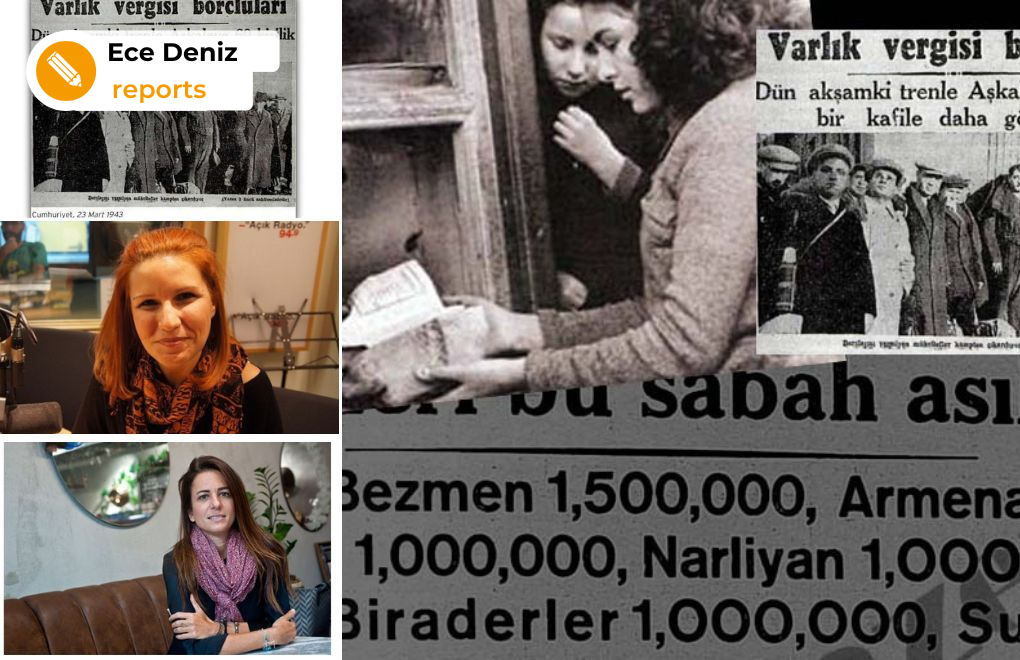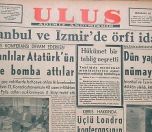Click to read the article in Turkish
Exactly 80 years ago today (November 11) a law was adopted in the Parliament in Ankara without any objections, quietly and with the support of most deputies. This was the Wealth Tax Law no. 4305.
Government of Türkiye, praising itself for not entering the Second World War, changed the history of a young country irreversibly by adopting the Wealth Tax Law on November 11, 1942.
For this law that was adopted in the parliament on November 11, and published in the Official Gazette on November 12, Şükrü Saracoğlu, the prime of the period was going to say, "This law is also a revolution legislation. We have an opportunity to gain our economic independence. By eliminating the foreigners who dominate our market, we will give the Turkish market to the Turks."
21 died "in debt"
The law was requesting a certain part of the properties from the wealthy.
Three commissions were set up in İstanbul where most non-Muslims lived. These commissions prepared lists and the Jews, the Armenians and the Greeks were forced to pay high taxes not separating the poor and the rich.
While Muslims were paying low taxes such as five percent, Jews were asked to pay 179 percent, and Armenians 229 percent. The non-Muslims who could not pay this tax although being wealthy were sent to work camps in Aşkale. 1229 people were sent to these camps. 639 people managed to pay their debts. 21 died under these conditions in debt.
"This meant losing the non-Muslims of the country"
Işıl Demirel is studying minority politics and doing field studies.
She says, "The wealth tax meant losing the non-Muslims in the society. What we know as hand-over of houses, workplaces was not only a transfer of capital.
"It also meant ending their professions, ending a culture. You know the narrative that "once upon a time you could not go to Beyoğlu without a hat." This was the starting point of that process.
"Ultimately the non-Muslims had met an education system as we know today earlier than the Turkish/Muslim population and therefore started education earlier. Those people who received education, who spoke foreign languages, who had different ways of doing business, trade migrated. Those who stayed continued living trying to be invisible."
"Memories were silenced"
Academic Özgür Kaymak, who studies minorities and identity politics, doing field studies also spoke to bianet.
She said, "The wealth tax was both a financial trauma and a crisis of confidence trauma for the minorities. We are talking about a memory which needed to be forgotten, which was not (could not be) narrated to new generations, which was covered, made silent.
"Leave alone large masses being aware of the 1934 Thrace pogrom, the Wealth Tax, the Events of September 6-7, many Jews, Greek or Armenians did not know what their families lived or they had some bit by bit stories.
"Although this memory started to resurface with the TV series 'Kulüp' and with novels such as 'Çember Apartmanı', most of the time the memories of those who suffered and their children were silenced most of the time.
"On the other hand, although the sad events are not narrated or discussed in the family, tax bills, or seals hanged on the houses taken away from them are still being kept as symbols of the trauma they went through. They are thus trying to prevent its total omission from the collective memory."
"There was no reason to stay"
The results of the minority policies and especially of the Wealth Tax has been destructive for Türkiye. One third of the Jews in Türkiye went to Israel established in 1948 after the end of the Second World War. The number was approximately 30,000.
Such mass migration was a sign showing how far the minorities had been intimidated. In 1948 the Jews migrated from a country with a 25 year history which had declared its independence with reforms to a newly established state the future of which was not clear and where there was no peace established. Leaving behind a centuries old history.
When asked why they went to Israel years later, they would say "There was no reason to stay." Most of the Greek population that remained behind would be leaving after the 1955 September 6-7 pogrom and the 1964 Relocation. (ED/PE/VK)











.jpg)
.jpg)
.jpg)
.jpg)
